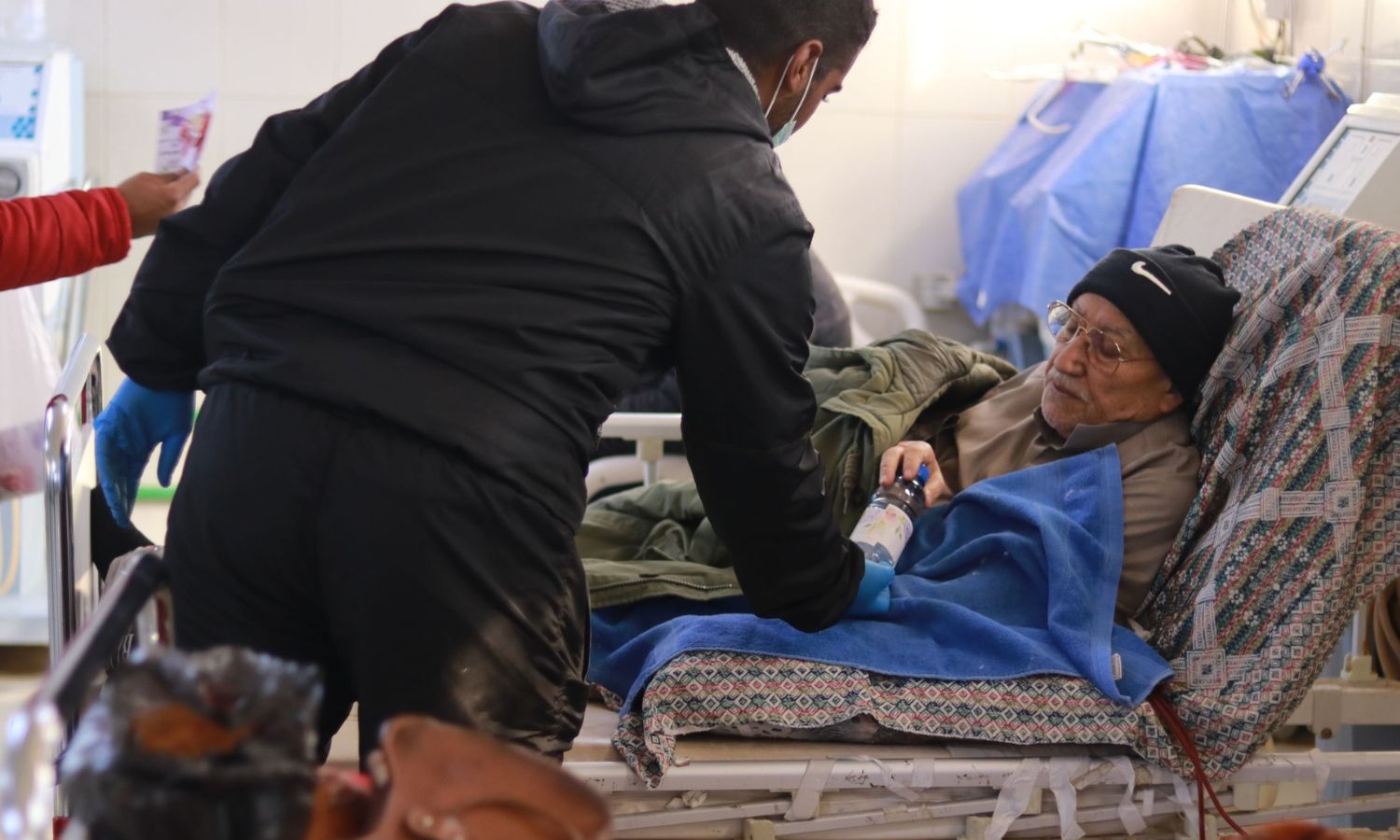



Deir Ezzor – Obadah al-Sheikh
The medical sector in Deir Ezzor is suffering from a shortage of medical staff and equipment, alongside soaring examination and medication costs compared to the residents’ income, with many types of medications not available at all.
This need became more apparent after the withdrawal of Syrian regime forces and Iranian militias from the city, and the takeover of the interim Damascus government, which reignited old demands for support and the recovery of the sector from its crises.
Dr. Yasser al-Khalaf, a neurosurgery resident at the National Hospital in Deir Ezzor, stated to Enab Baladi that hospitals in the city, including the National Hospital, lack specialists, emphasizing the necessity of securing an MRI machine, arterial blood gas devices, and intensive care technicians.
He added that some cases require surgical operations but lack anesthesiologists.
On her part, Sarah al-Najras, a nurse at Ahmad al-Huwaidi (formerly Military Hospital), noted that the shortage of medical supplies is “significant,” particularly the absence of an MRI machine across the entire province, adding that its presence is crucial for early disease diagnosis.
She mentioned that the hospital had suffered from the theft of several medical devices following the withdrawal of previous regime forces and the control of the Syrian Democratic Forces (SDF) over the city, followed by their exit.
Louay al-Khalaf, a volunteer nurse at the Ahmad al-Huwaidi hospital, called on the Ministry of Health to secure the machine, as it spares patients the burden of travel and exorbitant costs. Currently, patients must travel to Damascus or Aleppo for imaging.
For years, the medical sector, whether in Deir Ezzor or its countryside controlled by the Autonomous Administration of North and East Syria (AANES), has struggled with a shortage of equipment and medical staff, with sporadic outbreaks of infectious diseases surfacing from time to time.
Many medical specialties are absent in the region, most notably neurosurgery and cardiac surgery. Additionally, doctors constantly face threats pushing them to leave the area in search of a safer location to continue their work.
Dr. Nasr al-Alwan, the head of the medical syndicate in Deir Ezzor, told Enab Baladi that the medical situation in the province was evaluated by the Ministry of Health as “very bad and below zero.”
He noted that most hospitals in Deir Ezzor are destroyed, medical supplies are dilapidated, and there is a shortage of staff both in quantity and expertise.
According to the ministry’s perspective, securing an MRI machine is considered a necessity after addressing the basic life-saving needs.
Al-Alwan added that the machine primarily aids in diagnosing neurological cases and can be partially supplemented by CT scans, while surgical operations and emergency surgeries cannot proceed without a diagnosis via MRI.
He pointed out that there are priorities after obtaining the machine, including preparing a space for it, securing a medical staff to oversee its operation, and having competent personnel to address medical needs following MRI procedures, emphasizing that this is part of the needs plan for Deir Ezzor, which the health directorate is working to fulfill.
He indicated that the directorate is also working on securing new operating rooms, kidney dialysis machines, incubators and ventilators for children, as well as emergency rooms operating round the clock to avoid transferring cases to private hospitals.
The medical sector in Deir Ezzor has undergone several changes over the years, as the healthcare system has been almost entirely destroyed post-war due to the region’s circumstances, differing powers of control, and the emigration of doctors and medical staff, which has negatively impacted the local population.
if you think the article contain wrong information or you have additional details Send Correction